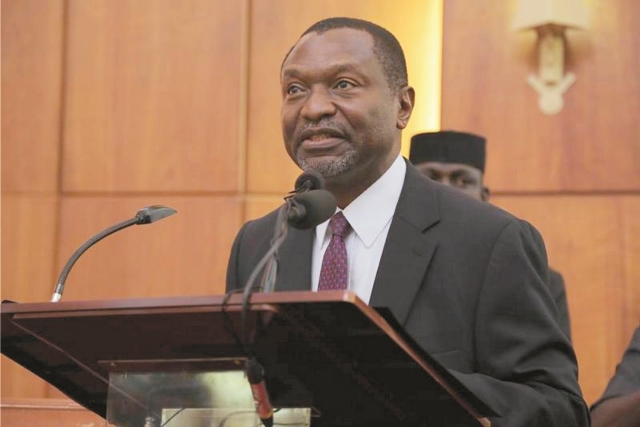News
FG Releases 15% Of Capital Projects’ Funds

The Minister of National Planning and Budget, Senator Udo Udoma, yesterday told the Senate Committee on Appropriation that the capital releases of the Federal Government currently stands at 15%.
According to the Minister , this was due to low revenue generation across the revenue agencies of the government.
Sen .Udoma also explained that the procurement procedure, as well as the activities of the militants in the Niger Delta region, had grossly reduced the volume of oil exportation, hence, the low revenue profile of government which in turn is affecting capital releases.
Recall that President Mohammadu Buhari’s government had in its N6.6 trillion budget for 2016, voted about a trillion naira for capital expenditure, but little is being currently done in capital budget implementation due to revenue shortfall being experienced by the government.
Udo Udoma further pointed out that the procurement procedure problem arose from the six months requirement for procurement process on execution of new projects as provided for, in the Public Procurement Act.
His words, “no new project is ripe for any capital releases because of the six months of procurement process including advertising and so on. It is only existing projects which already met the criteria for the various procurement stages that are qualified for capital releases”.
According to the Minister, the overall revenue for the first quarter, was about 55% of the projected revenue expectations which, according to him was due to the agitation in the Niger Delta by militants and earlier difficulties faced by importers in accessing foreign exchange.
His words, “the bulk of the problem of low revenue generation came from militant agitations in the Niger Delta which affected oil production that prevented us from reaching the 2.2 billion barrel even though the price is going up.
“At a point production went down to one million barrel but right now, we have been informed by the Minister of Petroleum that it is going up again to about N1.9 billion barrel but that, the revenue will come in three months time because the generation of today is not the revenue of today but of three months time”, he said.
Udoma however expressed optimism that many of the new capital projects captured in the budget would be executed , since the duration for the budgetary implementations has been extended to May next year by the National Assembly, more so, with revenue going up now.
“The National Assembly gave us till May next year to carry out the capital expenditure and we still have 10 months of capital spending to do.
“Nevertheless, out of the capital for MDAs, out of N1, 587, 598, 122, 028, we have released N235, 916, 566, 642 ( 15 percent), he added.
“In personnel releases, the budget was N1, 723, 819, 398, 198 but was we released was N871, 459, 760, 939 which comes to about 50 percent. This is the way it should be because we are already in July and we have done six months which is half of the year.
“For overhead, the budget is N218, 368, 364, 886 and we have released N52, 913, 047, 226 (25 percent), he explained.-
The committee chairman, Danjuma Goje in his remarks indicated that the committee ensure will in the remaining 10 months thoroughly mark closely the budgetary implementations , especially the capital expenditure
Nneka Amaechi-Nnadi, Abuja
News
Cleric Predicts Breakthrough, Warns of Political and Security Challenges in 2026

News
Ado Royal Family Disowns Alleged Installation of Amanyanabo of Okrika

News
PH Traders Laud RSG’s Fire Safety Sensitisation Campaign

-

 Politics5 days ago
Politics5 days agoEFCC Alleges Blackmail Plot By Opposition Politicians
-
Business5 days ago
AFAN Unveils Plans To Boost Food Production In 2026
-

 Sports5 days ago
Sports5 days agoJ And T Dynasty Set To Move Players To Europe
-
Politics5 days ago
Datti Baba-Ahmed Reaffirms Loyalty To LP, Forecloses Joining ADC
-
Business5 days ago
Industrialism, Agriculture To End Food Imports, ex-AfDB Adviser Tells FG
-
Politics5 days ago
Bayelsa APC Endorses Tinubu For Second Term
-
Business5 days ago
Cashew Industry Can Generate $10bn Annually- Association
-

 Entertainment5 days ago
Entertainment5 days agoAdekunle Gold, Simi Welcome Twin Babies

